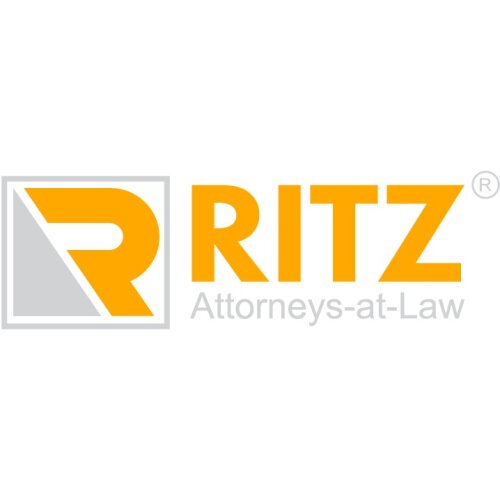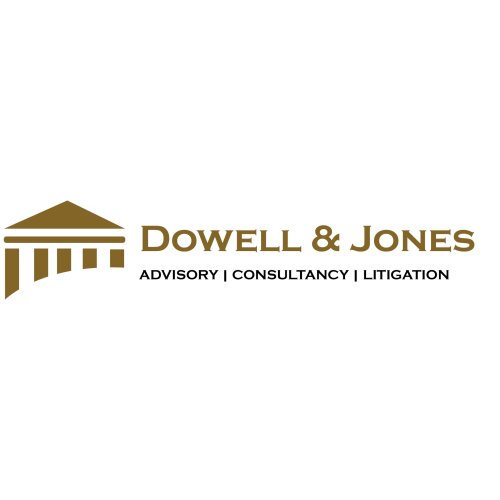Best Public-Private Partnerships (PPP) Lawyers in Malawi
Share your needs with us, get contacted by law firms.
Free. Takes 2 min.
Or refine your search by selecting a city:
List of the best lawyers in Malawi
About Public-Private Partnerships (PPP) Law in Malawi
Public-Private Partnerships, commonly referred to as PPPs, are collaborative arrangements between government entities and private sector organizations for the financing, construction, and operation of public infrastructure or services. In Malawi, PPPs serve as a promising strategy to address deficits in essential infrastructure and public services, such as roads, power generation, water services, health facilities, and more. The Government of Malawi has established a legal and regulatory framework to ensure transparency, fairness, and efficiency in these partnerships, aiming to harness the expertise and resources of the private sector while delivering value for citizens.
Why You May Need a Lawyer
Entering into a PPP involves complex contractual, regulatory, and financial considerations. Here are some common situations where legal help is invaluable:
- Evaluating the feasibility and risk profile of a PPP project
- Drafting, negotiating, or reviewing PPP contracts or agreements
- Understanding compliance requirements under local PPP laws
- Participating in competitive bidding or procurement processes
- Resolving disputes or misunderstandings between public and private partners
- Addressing regulatory factors such as licensing, land use, tax implications, or immigration for foreign investors
- Ensuring fair allocation of obligations, liabilities, and rewards under the partnership
- Navigating project financing arrangements and loan structures
Since PPPs often involve significant investment and long-term commitments, proper legal guidance can protect your interests and help the project achieve its goals.
Local Laws Overview
The primary legislation governing Public-Private Partnerships in Malawi is the Public-Private Partnership Act of 2011. This law sets out the formation, structuring, and regulation of PPPs and establishes the Public-Private Partnership Commission (PPPC) as the main body responsible for overseeing and approving PPP projects.
- The PPPC evaluates and approves PPP proposals, manages tendering processes, and ensures compliance with legislative requirements.
- The law mandates open and competitive procurement methods to promote transparency and value for money.
- Various public sector projects are eligible for PPP arrangements, including those in energy, transport, accommodation, water, and social infrastructure.
- The Act outlines the project development process, risk allocation, dispute resolution mechanisms, performance standards, and public interest safeguards.
- Environmental and social impact assessments may be required for qualifying projects.
- The law also provides guidance on project financing structures and public sector support mechanisms.
It is important to note that sector-specific regulations, such as those pertaining to land, environment, procurement, or finance, may also be relevant to PPP transactions in Malawi.
Frequently Asked Questions
What is a Public-Private Partnership (PPP) in Malawi?
A PPP in Malawi is a legal arrangement between a government entity and a private company to finance, design, construct, operate, and maintain public assets or provide public services under a long-term contract.
Who regulates PPP projects in Malawi?
The Public-Private Partnership Commission (PPPC) is the primary regulatory authority overseeing PPP project approvals, tenders, and compliance.
Which sectors can PPPs be used for in Malawi?
PPPs in Malawi are permitted across various sectors, including transportation (roads, railways, airports), energy, water and sanitation, health, education, and housing.
How are PPP projects awarded in Malawi?
PPPs are typically awarded through a public tender or competitive bidding process managed by the PPPC to ensure transparency and value for public funds.
Does foreign investment play a role in Malawi PPPs?
Yes, foreign companies can participate in PPPs, subject to compliance with local laws and, in some cases, approval from relevant regulatory authorities, such as immigration or investment promotion agencies.
What are the key steps in developing a PPP project?
The process often includes project identification, feasibility studies, procurement (tender), contract negotiation, financial closure, implementation, and ongoing monitoring.
How are disputes resolved in PPPs?
PPP agreements usually provide for dispute resolution processes, such as negotiation, mediation, arbitration, or recourse to local courts, depending on the terms of the contract.
What are the main risks involved in PPP projects?
Risks include funding and financial risk, construction and operational risk, regulatory changes, political risk, and risks of contractual disputes.
Can the government provide guarantees or support in PPPs?
Yes, the government may offer support mechanisms like guarantees, subsidies, or tax incentives to enhance project viability, subject to legal provisions and fiscal responsibility.
Do I need special approvals before starting a PPP project?
Yes, initiating a PPP requires approval from the PPPC and may also need sector-specific licenses, environmental clearances, or permits, depending on the project's nature.
Additional Resources
For more information, guidance, or support regarding PPPs in Malawi, consider the following resources:
- The Public-Private Partnership Commission (PPPC) of Malawi - the main regulatory authority for PPPs
- The Malawi Ministry of Finance - for fiscal policy and public investment information
- The Malawi Investment and Trade Centre (MITC) - for investor support and guidance
- The Malawi Law Society - to find qualified legal professionals experienced in PPP matters
- Sector-specific regulatory bodies (such as Environmental Affairs Department or the Department of Energy)
- International development organizations with PPP toolkits, such as the World Bank or African Development Bank
Next Steps
If you require legal assistance with a Public-Private Partnership in Malawi, start by clarifying your objectives and gathering all relevant documentation or project details. Consider consulting with a lawyer or firm experienced in PPP transactions and Malawi's legal environment. Arrange for an initial consultation to discuss your needs, and request advice on compliance, risk management, and project structuring. If your project is at an early stage, the PPPC or a sector regulator can provide initial guidance.
Acting early and seeking professional advice can help you avoid pitfalls, ensure regulatory compliance, and structure your PPP for success. Do not hesitate to contact local authorities or legal practitioners for specific guidance tailored to your unique situation.
Lawzana helps you find the best lawyers and law firms in Malawi through a curated and pre-screened list of qualified legal professionals. Our platform offers rankings and detailed profiles of attorneys and law firms, allowing you to compare based on practice areas, including Public-Private Partnerships (PPP), experience, and client feedback.
Each profile includes a description of the firm's areas of practice, client reviews, team members and partners, year of establishment, spoken languages, office locations, contact information, social media presence, and any published articles or resources. Most firms on our platform speak English and are experienced in both local and international legal matters.
Get a quote from top-rated law firms in Malawi — quickly, securely, and without unnecessary hassle.
Disclaimer:
The information provided on this page is for general informational purposes only and does not constitute legal advice. While we strive to ensure the accuracy and relevance of the content, legal information may change over time, and interpretations of the law can vary. You should always consult with a qualified legal professional for advice specific to your situation.
We disclaim all liability for actions taken or not taken based on the content of this page. If you believe any information is incorrect or outdated, please contact us, and we will review and update it where appropriate.
Browse public-private partnerships (ppp) law firms by city in Malawi
Refine your search by selecting a city.
















